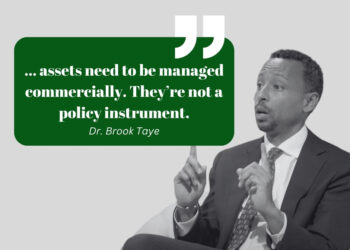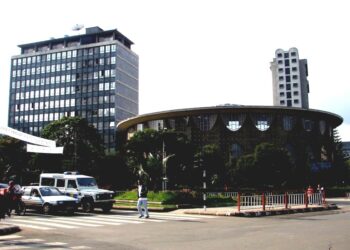This week, the Ethiopian Capital Market Authority (ECMA) convened a panel discussion on “Aligning Startups With Funding Opportunities.” The session delved into crucial strategies and initiatives aimed at empowering startups in Ethiopia, with a focus on fostering growth, enhancing quality, and increasing early-stage funding.
According to the Ethiopian Statistical Services, the annualized headline inflation rate dropped by two percentage points in March to 26.2% compared to February. The Consumer Price Index (CPI) showed a deceleration in food price inflation to 29% from the preceding month and a decline in non-food inflation to 22% from 23.5%.
The Reporter Amharic, citing sources, disclosed that the National Bank of Ethiopia (NBE) is in the process of formulating legislation aimed at regulating individuals or entities who borrow from multiple banks. The primary objective of this law is to safeguard the financial sector if businesses of these concentrated borrowers encounter difficulties, according to the news. According to the latest Financial Suitability Report released by the central bank, 23.5% of the total outstanding loans, amounting to 1.9 trillion birr, were acquired by just 10 borrowers, representing an increase from the previous fiscal year’s 18.7% share.
The International Monetary Fund (IMF) has projected a 6.5% expansion for Ethiopia’s economy in 2025, indicating a modest improvement compared to the previous year’s forecast of 6.2%. The government has forecasted a 7.9% economic growth for the ongoing fiscal year in Ethiopia, spanning from July 2023 to July 2024.
The Commercial Bank of Ethiopia (CBE) has disclosed that it successfully retrieved more than 762 million birr, which was affected by the technical malfunction the bank encountered on March 15, 2024. According to the Bank, this recovered sum represents 95% of the total amount intended for recovery. Just a few weeks prior, CBE had reported a loss of 801.4 million birr from the incident.
The Ethiopian Investment Commission with the Ministry of Trade & Regional Integration has officially announced the new directive approved by the investment board led by Prime Minister Abiy Ahmed (PhD), which opens up import, export, wholesale, and retail businesses that were previously restricted to local investors to foreign investment. The directive doesn’t extend to the import and wholesale distribution of petroleum and fertilizer, which are deemed as strategic commodities by the government and receive subsidies.
The parliament has passed the Special Economic Zone Bill, which allows the establishment of national special economic zones across the country to gear towards enhancing the country’s export system, boosting Foreign Direct Investment (FDI), and generating employment opportunities. The establishment of these zones is also expected to facilitate the development of a framework for expanding dry ports and ensuring seamless logistics services along Ethiopia’s primary trade routes, according to the proclamation.
Reuters, citing the IMF Mission Chief for Ethiopia, Alvaro Piris Chavarri, reported there are still “differences” between the International Monetary Fund (IMF) and Ethiopia regarding a funding package for the country’s economic reform plan. Ethiopian officials are participating in the IMF and World Bank Spring Meetings in Washington DC. These meetings commenced earlier this week following two weeks of negotiations in Addis Ababa from the end of March to April, which did not lead to a final agreement.
Stockmarket.et has concluded its inaugural cohort internship program and is set to proceed with its second cohort. The program aims to enhance the skills of young students in preparation for future involvement in capital markets. Our commitment to fostering financial literacy remains steadfast as we persist in addressing challenges within the financial domain.
✨✨Have a Great Weekend ✨✨



















